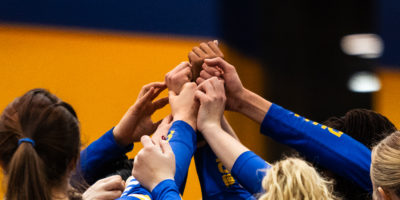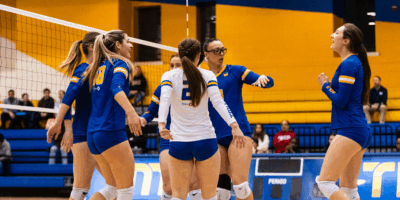By Ian Vandaelle
From the Mattamy Athletic Centre to the new Sears Atrium to the ongoing sponsorship agreement with Coca-Cola Canada, which includes exclusive beverage rights on campus, Ryerson has become a model of how corporate sponsorship has crept onto campuses of public universities in recent years.
Partnerships with the private sector have enabled rapid expansion and improvements to campus, something Ryerson president Sheldon Levy said is key to the development of new facilities as well as to the reputation of the university itself.
But, Levy cautions that partnerships need to be approached prudently and cautiously, lest the agreements take a damaging turn to the university’s reputation.
“You have to have a name that enhances your value, and you make a big mistake to get a name for $10 or 15 million dollars that detracts from your value,” he said “We’ve had the board reject applications for that reason.”
But even the partnerships that Levy has struck in his two terms as Ryerson’s president has left Rodney Diverlus, Ryerson Students’ Union (RSU) president, nervous about the corporate presence on campus.
Diverlus said the RSU, which has recently shunned corporate sponsorship, would prefer to see funding for university advancement coming from provincial coffers rather than corporate ones.
“We are in the mindset that these institutions are public institutions,” he said. “Public institutions means that our tax dollars go to them and as such, if we need more money, we need to go to the provincial government and demand more money.”
However, with rising costs of infrastructure and other educational costs, universities are grappling with the issue of how much sponsorship they let in, not whether they should be letting corporations through the door.
That ship has long since sailed, according to David Soberman, the Canadian National Chair in Strategic Marketing at the University of Toronto’s Rotman School of Business.
“I think 50 years ago, people might think it’s an absolute travesty to have a classroom named after a corporation but now that seems to be OK,” he said. “It has to do with what’s become culturally responsible and that seems to be a function of the way the world is going.”
But that shift to corporate-sponsored buildings is not just being used to pump money into the university; it boosts Ryerson’s reputation among the public, according to Levy.
Levy used both Ryerson’s recent partnerships with Mattamy Custom Homes and the Weston family in regards to the rejuvenation of Maple Leaf Gardens as an example of the strength that can be derived from what the university administration sees as solid, brand-enhancing partnerships.
But Diverlus fears being beholden to the purse strings of large corporations will ultimately hurt the amount of control administration and taxpayers will have in regards to the direction of the university.
“Relying on an increase in corporate funding actually further privatizes our education system,” he said. “It actually … puts it in the control of corporations.”
Ryerson’s policy on sponsorship agreements explicitly forbids an arrangement that would see any loss of university autonomy, stating “Ryerson University will not enter into any alliances or partnerships with any corporation or organization where the association with the prospective partner or acceptance of the sponsorship would jeopardize the financial, legal or moral integrity or adversely impact upon the University’s standing and reputation in the community.”
So far, Ryerson’s sponsorship agreements have largely been related to buildings owned by the university, with the exception of the AMC, in which Ryerson is a part-time tenant.
But Ryerson is entering uncharted territory, as their new residence will be privately owned, leaving Diverlus wondering what will happen if the relationship between Ryerson and MPI Group, the developer of the building, sours.
“I’m very curious to see how the operations of two residences [work]; one that’s owned by this external company, but run by Ryerson, that looks like Ryerson, the other that’s completely run by Ryerson staff, completely owned by Ryerson,” said Diverlus.
“I’m very interested to see five or 10 years down the line where that division is going to happen. Although to us as students, it looks the same … fundamentally we’re sleeping in two separate beds owned by two separate people that make the final decisions.”












Leave a Reply